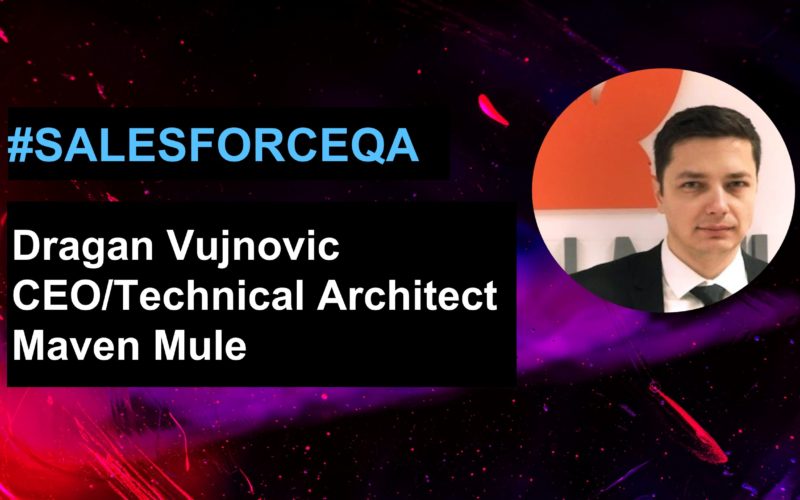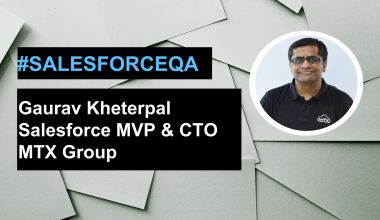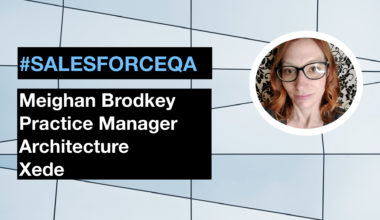In our most recent #SalesforceQA, we caught up with Dragan Vujnovic, CEO and Technical Architect at Maven Mule. Dragan talks about the importance of the Salesforce community to career advancement, as well as how Maven Mule are tackling one of the biggest challenges right now in Salesforce; sourcing and engaging the right talent.
Salesforce Republic (SR): Could you talk us through the beginning of your career and how you got into a career in the Salesforce ecosystem?
Dragan Vujnovic (DV): I started as a web developer more than 15 years ago in high school, and then I took a Masters degree in Computer Science. Over time I was getting more opportunities to work for big companies on big projects. Having more experience led to more job opportunities, so in 2014 I joined a Salesforce Platinum Partner company called CloudSense as a Principal / Technical Architect.
As a Principal and Lead, my main responsibilities ranged from managing commercials, to making technical solutions. From engaging with customers at a senior executive level, facilitating discussions that lead to critical and strategic decisions, aligning objectives on multiple projects, owning communication and processes, providing various assurances, building empathy and trust, engaging with business change to provide recommendations and detailed design, define plans and roadmaps to deliver complex assignments into workable solutions, coaching, facilitating groups and manage development teams and tasks. With a good Salesforce network and reputation, I was in the position to establish a new Salesforce ISV Partner company called Maven Mule.
SR: You are CEO at Maven Mule, a Salesforce ISV Partner company. Could you explain a little more about what it is that Maven Mule does and the benefits of Maven Mule products to users?
DV: Maven Mule is a boutique consultancy and ISV partner company, with experts that are playing key roles in enterprise digital transformations for more than 10 years. We’ve delivered successful Salesforce projects for leading telecom, utility, media, health, government, travel and non-profit organizations, across the globe.
Our main product is the Maven Integration Platform, which is a Salesforce natively built application, providing more efficient ways to integrate other systems with Salesforce. The core feature of MIP is a GraphQL. The leverage of GraphQL capabilities and effectiveness are already proven and well known in various integrations scenarios. With MIP, a GraphQL language with Queries and standard Salesforce object schema are natively supported and available directly on a Salesforce via existing REST API.
Maven Integration Platform also brings some outbound capabilities which emerges on how outbound messages can be easily sent in a configurable way to other systems via processes and REST. For more complex scenarios, and specific external and/or third-party system integrations, it provides an infrastructure for easy building own required adapters and messages that can be seamlessly used with a platform.
SR: What are some of the benefits and challenges of starting a new player in the Salesforce market?
DV: Being a part of the Salesforce family is a benefit in every sense, from a niche business perspective to having opportunities to work on interesting projects across the globe and sharpen various different skills.
The Salesforce product catalogue is getting bigger and bigger very quickly, and in the same way a Salesforce ecosystem and required skills for customer success are growing rapidly – I see maintaining a pace as the main challenge.
SR: What are your 5 top tips for others looking to succeed as a Technical Architect in the Salesforce ecosystem?
DV: My top five tips are learn, learn, learn and learn some more. Continual learning is essential, but then it’s also important within Salesforce to promote and share your knowledge with your peers!
SR: In your experience, what are some of the key traits that you need in order to succeed as a Technical Architect?
DV: The main challenge is to get a role for the first time. Once you get it then it’s show time. Give your best to show your skills and build trust. Building trust as a reliable person is key.
SR: What advice do you have to those looking to start their journey to becoming a CTA?
DV: Having experience requires time. So start today…
SR: You have gained a range of both Salesforce and Microsoft certifications throughout your career. Could you explain your views on certifications as a whole? Do you think they are essential for success?
DV: Having two top architecture Salesforce certificates will help structure your knowledge, and will be the first step in promotion, but that is only formal.
SR: In your opinion, how important is the Salesforce community to career advancement?
DV: The Salesforce community I see as a boost mechanism, as that’s the place where I am finding out an answer for all of my questions related to Salesforce Partnership and career.
SR: One of the biggest challenges right now in Salesforce is sourcing and engaging the right talent. How have you tackled this at Maven Mule?
DV: At Maven Mule we are trying to identify a willingness to learn and succeed in all our candidates. Once we have that the rest is our management problem – to provide a proper growth platform.
SR: What are your suggestions for other businesses trying to close the skills gap?
DV: Investing time in people is crucial. Leading by example and building desired positive company culture should be a top management continuous initiative.
If you’re a Salesforce professional and would like to join Dragan Vujnovic, in our Q&A series, please get in touch with us today!


